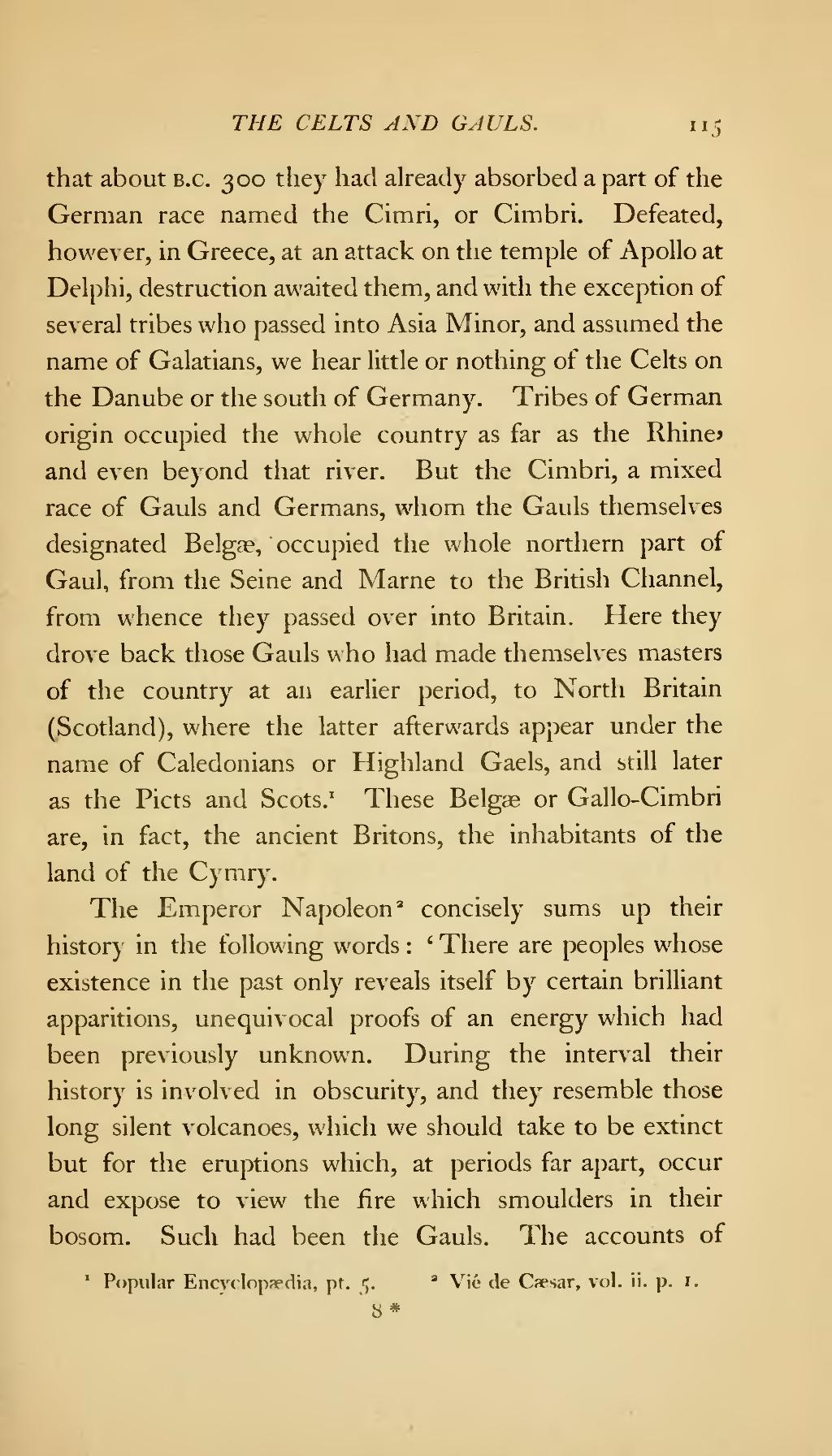that about B.C. 300 they had already absorbed a part of the German race named the Cimri, or Cimbri. Defeated, however, in Greece, at an attack on the temple of Apollo at Delphi, destruction awaited them, and with the exception of several tribes who passed into Asia Minor, and assumed the name of Galatians, we hear little or nothing of the Celts on the Danube or the south of Germany. Tribes of German origin occupied the whole country as far as the Rhine, and even beyond that river. But the Cimbri, a mixed race of Gauls and Germans, whom the Gauls themselves designated Belgæ, occupied the whole northern part of Gaul, from the Seine and Marne to the British Channel, from whence they passed over into Britain. Here they drove back those Gauls who had made themselves masters of the country at an earlier period, to North Britain (Scotland), where the latter afterwards appear under the name of Caledonians or Highland Gaels, and still later as the Picts and Scots.[1] These Belgæ or Gallo-Cimbri are, in fact, the ancient Britons, the inhabitants of the land of the Cymry.
The Emperor Napoleon[2] concisely sums up their history in the following words: 'There are peoples whose existence in the past only reveals itself by certain brilliant apparitions, unequivocal proofs of an energy which had been previously unknown. During the interval their history is involved in obscurity, and they resemble those long silent volcanoes, which we should take to be extinct but for the eruptions which, at periods far apart, occur and expose to view the fire which smoulders in their bosom. Such had been the Gauls. The accounts of

